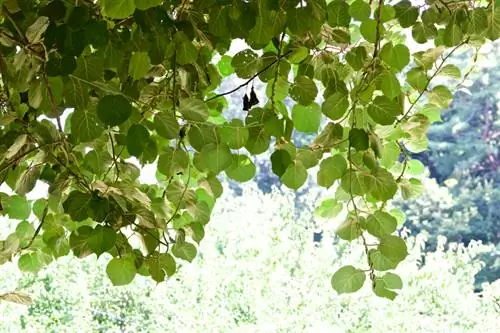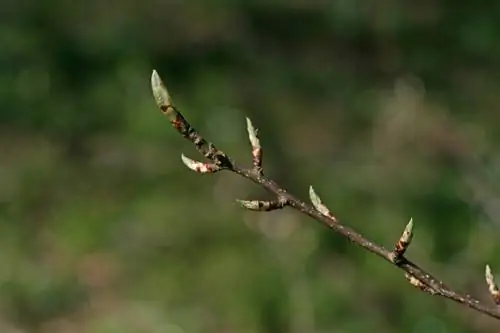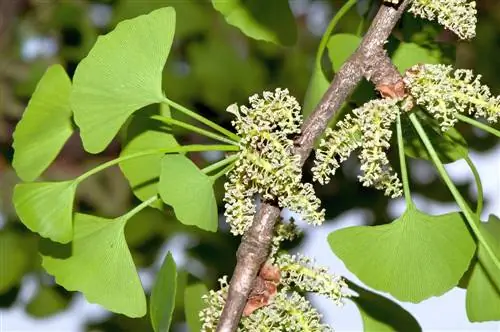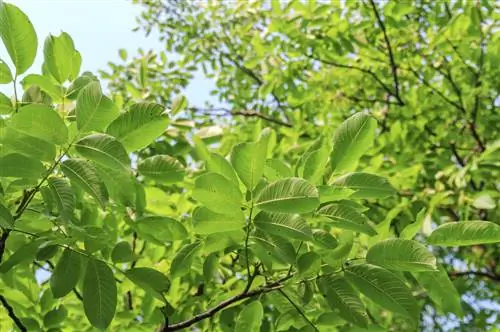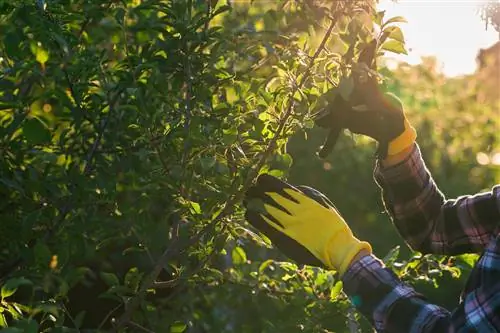- Author admin leonars@hobbygardeners.com.
- Public 2023-12-16 16:46.
- Last modified 2025-01-23 11:20.
The kiwi plants are dioecious. Fruit can only develop from the flowers of female plants. However, only if there is a male plant growing nearby that is required for fertilization.
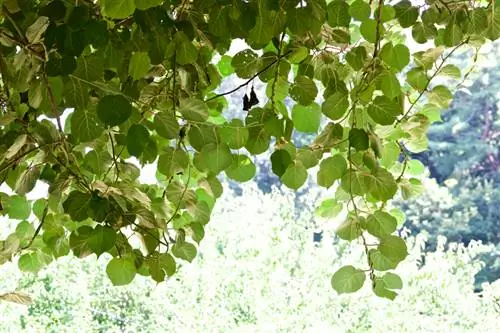
Why is my kiwi not bearing fruit?
If a kiwi does not bear fruit, this may be due to a lack of fertilization by male plants, late flowers, incorrect pruning or poor care such as over-fertilization. Make sure that both sexes of plants are present and that the care conditions are correct.
The kiwi bush is a dioecious plant. To harvest fruit, you must plant a male and a female kiwi next to each other. The distance between them should not exceed four meters. One male plant is capable of fertilizing six to nine female bushes. The monoecious varieties, which combine male and female flowers on one plant, do not require any additional pollinators, but the dealers themselves recommend planting a female and a male kiwi to ensure a reliable yield.
How to identify male and female plants
At the beginning of May, the first flower buds appear on the two-year-old shoots, which develop into white-yellow, fragrant flowers about four weeks later. You can tell by the flowers whether you have a male or female kiwi. The female flowers have a white style located in the center of the yellow stamens. The male flowers, on the other hand, have no style.
Care errors
Even if the fertilization conditions are adhered to, it can happen that the fruits and often the first flowers are still a long time coming. For the grafted plants, flower and fruit formation is expected from around the 3rd or 4th year. For plants grown from cuttings or seeds, it can take 10 years or longer.
Although the kiwis are not maintenance-intensive, the lack of fruit formation can indicate mistakes in care that should be avoided:
- Weather conditions are not taken into account (flowers of early varieties are at risk of late frost),
- inadequate nutrient supply, possibly over-fertilization,
- incorrect pruning (before flowering, so that the newly created flower buds are cut away).
Tips & Tricks
The smooth-skinned mini kiwi varieties are becoming increasingly popular because they are considered to have reliable yields even in local latitudes.

